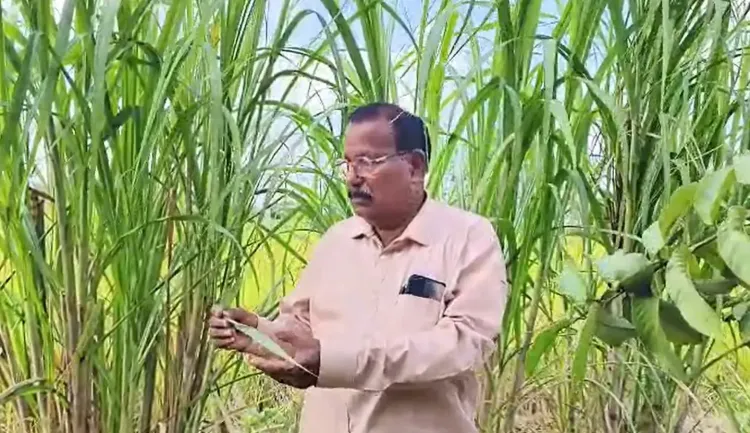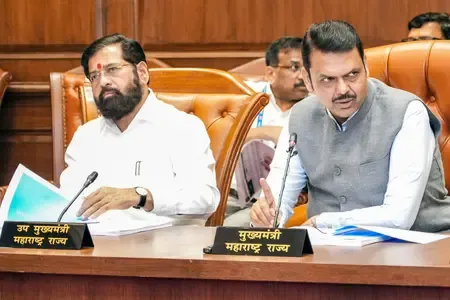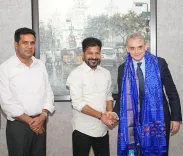How Did Chhattisgarh Farmer Vaman Tikriha Earn the Khubchand Baghel Krishak Ratna Award for Organic Innovation?

Synopsis
Key Takeaways
- Vaman Tikriha exemplifies the power of innovation in agriculture.
- His success story highlights the importance of organic farming.
- Diversification is key to stable and profitable farming.
- Government support plays a crucial role in farmer success.
- Tikriha advocates for research centres in rural areas to enhance farming practices.
Baloda Bazar, Nov 2 (NationPress) In a remarkable showcase of rural tenacity, Vaman Tikriha, a committed farmer from the humble village of Muswadih in Chhattisgarh's Baloda Bazar district, has received the esteemed “Dr Khubchand Baghel Krishak Ratna Award” for the year 2025-26.
Announced on 2 November in Baloda Bazar, this award represents a historic milestone as it is the first time since the state's inception that a local farmer has achieved this state-level honour, sparking widespread jubilation throughout the community.
Tikriha's path exemplifies the transformative impact of innovation in agriculture. Since starting his farming journey in 1990 and adopting organic practices in 2001, he has transformed his limited resources into a model of sustainable success after 25 years of relentless dedication.
This award recognizes trailblazers who enhance agriculture through innovative techniques, eco-friendly practices, and diversified income sources, and Tikriha's accomplishments vividly reflect this principle.
In an interview with IANS, Tikriha discussed his strategy, which includes cultivating organic aromatic rice such as Mahamaya and Swarna. His fields also produce a variety of horticultural crops, including plums, guavas, lemons, sweet potatoes, and cranberries.
Supported by government grants, he has incorporated fish farming, generating an additional income of one to two lakh rupees each year, alongside livestock rearing. These initiatives, bolstered by official programs, have stabilized his income and increased his profits.
Tikriha encourages fellow farmers to diversify their practices, moving away from paddy monoculture.
By embracing horticulture, aquaculture, and animal husbandry, he argues that one can achieve both stability and growth in their livelihoods.
He urges authorities to establish agricultural research centres further into rural areas, allowing farmers direct access to advanced technologies and training. The recognition he received has resonated deeply within the community.
From village streets to district offices, a wave of joy underscores the message that hard work and creativity can elevate agriculture to remarkable heights.
Tikriha's wife, Madhuri, shared their family's joy, stating, “We never imagined receiving such recognition. It fills us with pride. Young people often look for opportunities elsewhere, yet agriculture, supported by modern tools and state initiatives, offers fulfilling paths right here.”
This accolade not only crowns Tikriha's efforts but also highlights Chhattisgarh's farmers as innovators, nourishing the nation while fostering progress.
In a time when artificial intelligence aids precision farming globally, Tikriha's organic achievements serve as a reminder that human determination, paired with policy support, remains the foundation of agricultural advancement.
His journey inspires a new generation to secure their futures in agriculture, demonstrating that from hardship emerges enduring pride.









